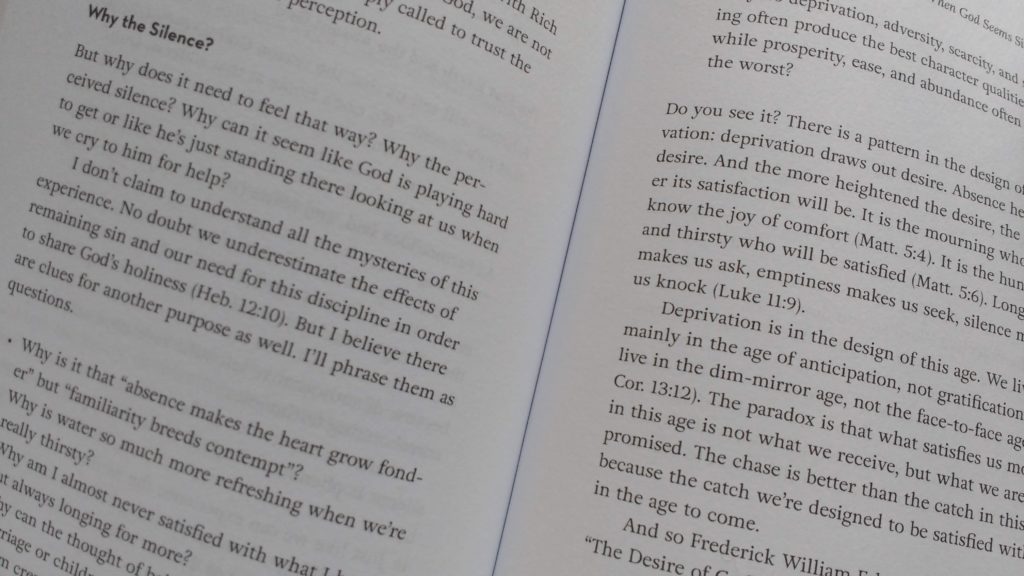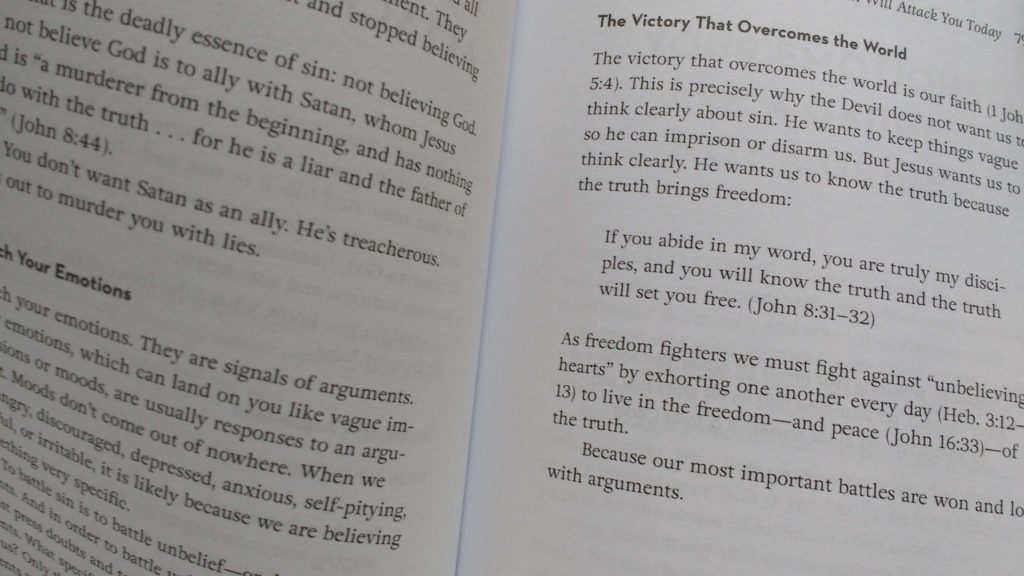I was searching for information on the hymn I Bind My Heart when a blog post entitled Bind My Wandering Heart to Thee by Jon Bloom came up. The article was a compelling read so I decided to pick up Jon’s most interesting sounding book – Don’t Follow Your Heart: God’s Ways Are Not Your Ways. I’ve been looking for more spiritual material to read because of our impeding move to Cambodia and this author seemed promising.
I found Don’t Follow Your Heart to be well written, easily accessible, well paced, and – often – insightful. But there was a recurring secondary message in the book that wasn’t helpful.
Most of my favorite theological texts are over fifty years year old and it was unexpectedly refreshing to read something that was both well written and contemporary. Jon formats his writing for an audience of the digital age with bulletin points, dividers, and other tools that direct attention. It’s much appreciated and helps keep the flow of the text going. The book is peppered with scripture and lines from hymns, with the occasional pop culture reference to Tangled or Wired magazine. It is nice to see Jon touch on struggles like ADHD.

After the introduction – which I loved – the book is divided into 31 short chapters (usually two to four pages) that can serve as meditations or devotionals. The individual chapters vary in focus but circle around the core theme that “Our hearts were never designed to be followed, but to be led. Our hearts were never meant to be gods in whom we believe, but to believe in God.”
I found the core message of the book to be very meaningful and reassuring… One of my core struggles with North American spirituality is how it focuses so much on the individual and this book does a great job of reminding us that we are not the star of this story.
Moses’ narrative is a good one for capturing the essence of this book. Young Moses’ actions show that he had a sense of what his life purpose would be…but he followed his heart and tried to accomplish that life purpose his way. This resulted in Moses killing an Egyptian, failing to inspire his people to follow him, and then running away in fear of retribution. When God’s calling to that life purpose finally came, Moses no longer wanted anything to do with it. As I paraphrased in another post, “I’m sorry, please send someone else… Please, anyone else!”

I did struggle with a recurring theme in the book that God leads good people along “predestined” paths of suffering as part of a greater plan. There is an implication in the book that God is in absolute control (reassuring to someone suffering) and that bad things are part of God’s plan (not reassuring). The author regularly cites Romans 8:28 as evidence of this – not surprising as Romans 8:28-30 is the core of predestination theology and the author’s ministry is affiliated with Calvinism.
28 And we know that God causes everything to work together for the good of those who love God and are called according to his purpose for them.
Romans 8:28
I’m not trying to offer a rebuttal of Calvinism here – that’s not the point of this blog – but I want to push back against the horrible things being “part of God’s plan” narrative. My own take on this is along the lines of what C.S. Lewis outlines in The Problem of Pain and touches on again in The Great Divorce. That is, to put something deep into only a few rough words, that bad things are caused by separation from God (who is life, love, and good incarnate) and that God’s transformative power can bring good from bad things. This doesn’t mean that God is the cause of suffering but rather that God is the solution to suffering. God will eventually cause everything to work together for the good – the peaceable kingdom has always been the goal – but that doesn’t negate our free will or the consequences of original sin. To quote C.S. Lewis.
“For you will certainly carry out God’s purpose, however you act, but it makes a difference to you whether you serve like Judas or like John.”
C.S. Lewis, The Problem of Pain
With that notable objection and a few duds that failed to connect aside, I found most of the book to be helpful and meaningful. The core message in particular struck home and felt countercultural to the point of being prophetic. Among the themes for each chapter were many excellent subject matters such as prosperity theology or feeling homeless. I’d definitely recommend it overall…just be prepared for some chapters leaning heavily on predestination.
Thanks Charles, Am always looking for good devo material. Yes, I also would not say that it is God’s plan that bad things happen, rather that God is the solution and help during those bad things. And yes, we need to work on our recognition of our dependence on God…am preaching on the Poor In Spirit this Sunday which is all part of that. Mom Rose